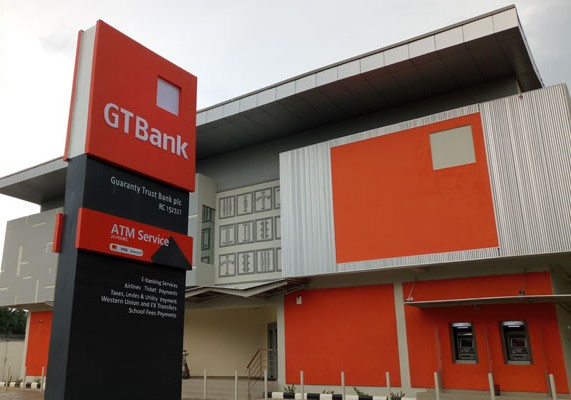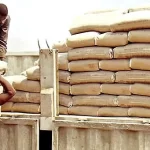A Bleak New Dawn in Nigeria’s Economic Landscape
Since President Bola Tinubu’s declaration that “subsidy is gone,” Nigerians have faced skyrocketing petrol prices, inflation, and relentless hardship. The impact is felt across Nigeria, from households struggling to afford basic meals to businesses wrestling with high costs, ultimately pushing many into a cycle of poverty. Amid these economic challenges, Nigerians are questioning if their lives have truly improved under these reforms.
“Nigerians are watching their standard of living crumble,” explains Tunde Akinlade, an economist based in Lagos. “The government has lost touch with the reality faced by its people. For many, daily life has turned into a survival game.”
Join our WhatsApp ChannelFuel Price Hikes and Inflation: A Heavy Burden for All
The recent hike in fuel prices, which soared from N175 in May 2023 to N1,030 per litre in October 2024, has been crippling. For Nigerians, this hike has brought an unavoidable rise in transportation and food costs. Basic items like beans, yams, and garri have witnessed price increases of over 200%, making them luxuries for many.
A Lagos-based trader, Abiola Adetola, shared her struggles. “It’s as if we’re being punished for trying to survive,” she said. “How can we cope when food prices keep rising every week? Many of us don’t know how we’ll feed our families tomorrow.”
With an inflation rate climbing to 40% as of October 2024, the middle and lower classes find themselves trapped, unable to sustain even the simplest lifestyle. Akinlade points out, “It’s a dire situation. When essentials become unattainable, poverty becomes inevitable.”
The Human Cost: Families Going Hungry
Across Nigeria, families are bearing the brunt of the economic crisis, with many parents unable to provide three meals a day for their children. School enrolment has dropped as parents cannot afford school fees, while others face malnutrition and rising health risks, contributing to Nigeria’s already high child and maternal mortality rates. This unfolding crisis underscores the urgency for change.
One father, Nduka Adah, expressed his dismay, saying, “Our children are paying the price for the government’s policies. We didn’t vote for this level of hardship.” Adah’s sentiment is echoed by millions who feel abandoned by a system meant to serve them.
Nutritionist Dr. Ifeoma Nnaji warns that the country may face long-term health repercussions. “The rise in malnutrition will create a generation facing stunted growth and health complications,” she stated. “Hunger is not just a meal skipped; it’s a future compromised.”
READ ALSO: How Police, Politicians Account For Almost 70% of Civic Infringements In Nigeria- Report
Naira Devaluation and Interest Rates: Compounding the Crisis
In addition to the fuel price surge, the naira has sharply devalued, exchanging at an average of N1,700 to the dollar, compared to N460 in May 2023. This devaluation has worsened the country’s cost-of-living crisis as the prices of imported goods escalate.
Financial analyst Chike Okeke explains, “The currency crash is devastating. Prices of goods that used to be affordable have now doubled or tripled. It’s pushing more Nigerians toward extreme poverty.” The increased interest rate, now at 26.75%, adds an additional layer of difficulty, discouraging businesses from borrowing and stalling economic growth.
For business owners like Temidayo Bakare, who runs a small electronics store in Lagos, survival has become a daily struggle. “My suppliers have doubled their prices. My customers can no longer afford to buy, and I’m at risk of shutting down,” he lamented. “These policies are breaking us.”
A Question of Priorities: Whose Welfare Comes First?
Nigeria’s economic crisis has been further exacerbated by policies that seem disconnected from the daily realities faced by citizens. The removal of subsidies was promised as a step toward a more robust economy, yet the dividends of this removal remain unseen. Citizens wonder if the sacrifices are leading to any meaningful change or if they are simply part of an experiment with disastrous consequences.
Political analyst Dr. Miriam Obasi believes that the government’s reforms lack a human element. “Reforms must improve lives, not lead to suffering. If Nigerians feel alienated by these policies, then the government has failed in its duty to serve them,” she asserted. Dr. Obasi further suggests that some of the policies could have been implemented with gradual transitions to ease the impact.
“There is no sense in making life unlivable under the guise of reform,” Dr. Obasi argued. “Other nations phase in changes to allow citizens to adapt. Nigeria deserves a compassionate approach to reform.”
Growing Discontent and Calls for Action
The frustration among Nigerians has led to waves of protests, including the #EndBadGovernance and #FearlessInOctober demonstrations, where citizens voiced their dissatisfaction. Despite these protests, the government continues with policies that critics argue are worsening the hardships.
“These reforms are pushing us to the breaking point,” activist and protest organiser Damilola Ibe remarked. “How can we endure more suffering in silence when our government remains deaf to our voices?” Ibe’s words reflect a growing anger among Nigerians, with labor unions and civil rights organisations warning of more strikes and protests if the government doesn’t act.
Many Nigerians are calling on the administration to revisit its approach, with suggestions that focus on tackling inflation, reducing wasteful spending, and prioritising job creation. “People are ready to stand up for themselves,” Ibe warned. “If this government doesn’t change course, it will lose the trust of the people entirely.”
A Path Forward: Recommendations for a Government on the Brink
Experts are suggesting a series of immediate steps to address the crisis. Economists recommend that the government reinvest the funds from subsidy removal into local industries to create jobs and stimulate economic growth. Dr. Nnaji suggests food security programs as essential to addressing the ongoing hunger crisis.
“Investing in agriculture could provide more affordable food and job opportunities,” she said. “Nigeria’s vast resources must be used strategically to relieve suffering, not exacerbate it.”
Likewise, economist Akinlade recommends structural reforms to strengthen the naira and lower interest rates to encourage borrowing and stimulate the economy. “We need to see the fruits of these reforms soon, or public confidence will erode entirely,” he said. Akinlade also emphasises the need for transparency: “The government must show Nigerians where every naira saved is going. Accountability can build trust and hope, both of which are needed right now.”
Final Thoughts: A Nation in Desperate Need of Relief
For Nigerians, each day is a test of resilience. The Tinubu administration’s reforms have presented a hope for a stronger economy but have so far delivered hardship. While the government insists on the long-term benefits of these changes, citizens are questioning if they will survive long enough to see them.
“Nigerians need a break,” Adah stressed. “We cannot keep sacrificing when there is no sign of relief. If our government is truly for us, then they must act now to make our lives livable.”
The challenges are daunting, but Nigeria’s spirit of resilience remains unbroken. The voices of Nigerians, calling for action and compassion, continue to ring out, urging the government to prioritise the welfare of the people they swore to serve.
Emmanuel Ochayi is a journalist. He is a graduate of the University of Lagos, School of first choice and the nations pride. Emmanuel is keen on exploring writing angles in different areas, including Business, climate change, politics, Education, and others.
- Emmanuel Ochayihttps://www.primebusiness.africa/author/ochayi/
- Emmanuel Ochayihttps://www.primebusiness.africa/author/ochayi/
- Emmanuel Ochayihttps://www.primebusiness.africa/author/ochayi/
- Emmanuel Ochayihttps://www.primebusiness.africa/author/ochayi/



















Follow Us